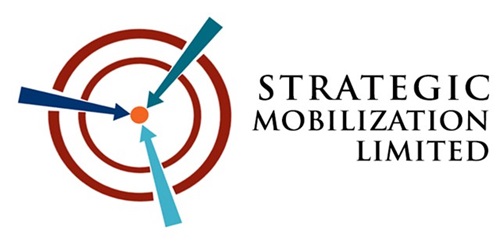
SML delivered on obligations in contract with GRA — Director
Strategic Mobilisation Ghana Ltd (SML) has stated that it delivered fully on its obligations outlined in its contract with the Ghana Revenue Authority (GRA).
The company said its productive performance formed the basis for the subsequent recommendation and awarding of the downstream petroleum audit contract. Reacting to the findings of the KPMG audit on its operations, SML stated that the Transaction Audit contract included provisions for monitoring and evaluation services, as well as a value-for-money assessment, both of which were diligently adhered to by both parties - the GRA and SML.
In a response signed by the Director of Support Services, SML, Yaa Serwaa Sarpong, the company said it was fully committed and confident in its efforts to ethically contribute to building a better Ghana for the present and future generations.
It said SML was doing so by adhering to high ethical standards. The company said it was ennobling that both the audit firm, KPMG, and the government did not jettison SML, a Ghanaian undertaking of high international standards, in the plugging of revenue loopholes for national development.
The statement welcomed KPMG’s confirmation of the importance of the upstream and minerals agreements and further observed that a comprehensive needs assessment in those sectors had been conducted, which supported KPMG's findings that revenue assurance audit services were needed in that sector.
However, the company had reservations about certain aspects of the KPMG findings and indicated that it had, therefore, instructed its lawyers to examine some of KPMG’s professional misjudgments and their extension into the other unfavourable positions of the government.
Audit
On January 2, 2024, the Presidency appointed KPMG, an audit, tax and advisory services firm, to conduct an immediate audit of the Full Risk-Reward Partnership Agreement between the GRA and SML.
The original agreement targeted revenue leakages in the downstream petroleum sector. However, due to the success of the original rollout, the performance-driven agreement was later expanded to include the upstream petroleum and minerals sector.
Report exonerates SML
The statement stressed that the independent report from KPMG, while containing some disputed and inaccurate statements, unequivocally confirmed that there was no 10-year contract and that $100 million was not paid to SML.
In addition, it confirmed that there was no duplication of work with respect to the work of the National Petroleum Authority (NPA) and that the GRA awarded the 2023 consolidated contract to SML following due process.
SML, it confirmed, had a risk-reward performance-based contract, which SML fully finances without a “pesewa" of government’s money. However, SML pointed out that KPMG's finding, which suggested that fees estimated to be paid under the five-year consolidated contract averaged GH¢1 billion per year, was false.
SML clarified that in determining the fees, KPMG did not consider investments made by SML to carry out the exercise that had saved the country billions of Ghana cedis, interest payments of 32 per cent on loans it obtained to invest as well as the statutory taxes of 31.5 per cent taken before payment and other taxes or duties over the period.
“KPMG creates a very unbalanced impression of the relationship between the compensation and the investment and other related costs. This omission is highly misleading,” the statement said.
“We have instructed our lawyers to examine some of KPMG’s professional misjudgements and their extension into the other unfavourable positions of the government,” it added.
The statement said the award of the performance-driven contract was in full compliance with the Public Procurement Act (Act 663), as amended.
SML also disagreed with the findings regarding the Transaction Audit and External Price Verification Agreements and also rejected KPMG's assertion that it partially delivered on several requirements regarding the Transaction Audit Service Agreement.
“Regarding the transaction audit services, SML delivered fully on its obligations as outlined in the contract. SML’s productive performance was the basis for subsequent recommendation and awarding of the downstream petroleum audit contract”.
“The Transaction Audit contract includes provisions for monitoring and evaluation services as well as a value-for-money assessment, both of which were diligently adhered to by the GRA and SML,” it emphasised.
On findings regarding External Price Verification Services, SML rejected KPMG's observation that the Integrated Customs Management System (ICUMS) had inbuilt capabilities for that, saying “SML is an independent assurance audit firm contracted to audit ICUMS, assess the customs at CTSB (Customs Technical Service Bureau) on classification and valuation, and audit the values accordingly”.
ICUMS, it said, could not audit its operations and that SML services provided extra oversight when it came to classification and valuation.
Performance assessment
On realised petroleum volumes and tax revenue, it said SML disagreed with KPMG's findings regarding the realised petroleum volumes and the tax revenue realised as a result of the compliance tools that led to increased volumes.
The statement said during the audit, KPMG used NPA and ESLA volumes to evaluate the performance of the downstream petroleum to determine GRA tax revenue. The statement said KPMG's reliance on incorrect data inevitably steers them towards inaccurate conclusions.
“SML strongly contended in writing to KPMG during its audit that NPAs/ ESLA’s volumes are Lifting or Trading Volumes but not GRA taxable volumes. SML further contended that NPAs / ESLA Volumes could not be used for performance computation”.
The statement added that SML, together with the GRA, submitted to KPMG that the taxable volumes were properly evident in the Bank of Ghana's petroleum tax revenue receipts in its Petroleum Holding Accounts,” it said.
SML said its supervision within the sector led to a drastic monthly average increase from 207,885,058 to 450,175,163 in taxable volumes for the periods January to December 2019 and May 2020 to April 2021, respectively.
That, it said, translated into 10,308,536,872 in excess gained volumes and excess revenue of GH¢14.84 billion and that the significant increase in monthly average taxable volumes of 450 million litres had been sustained over the past three years of SML’s deployment.

